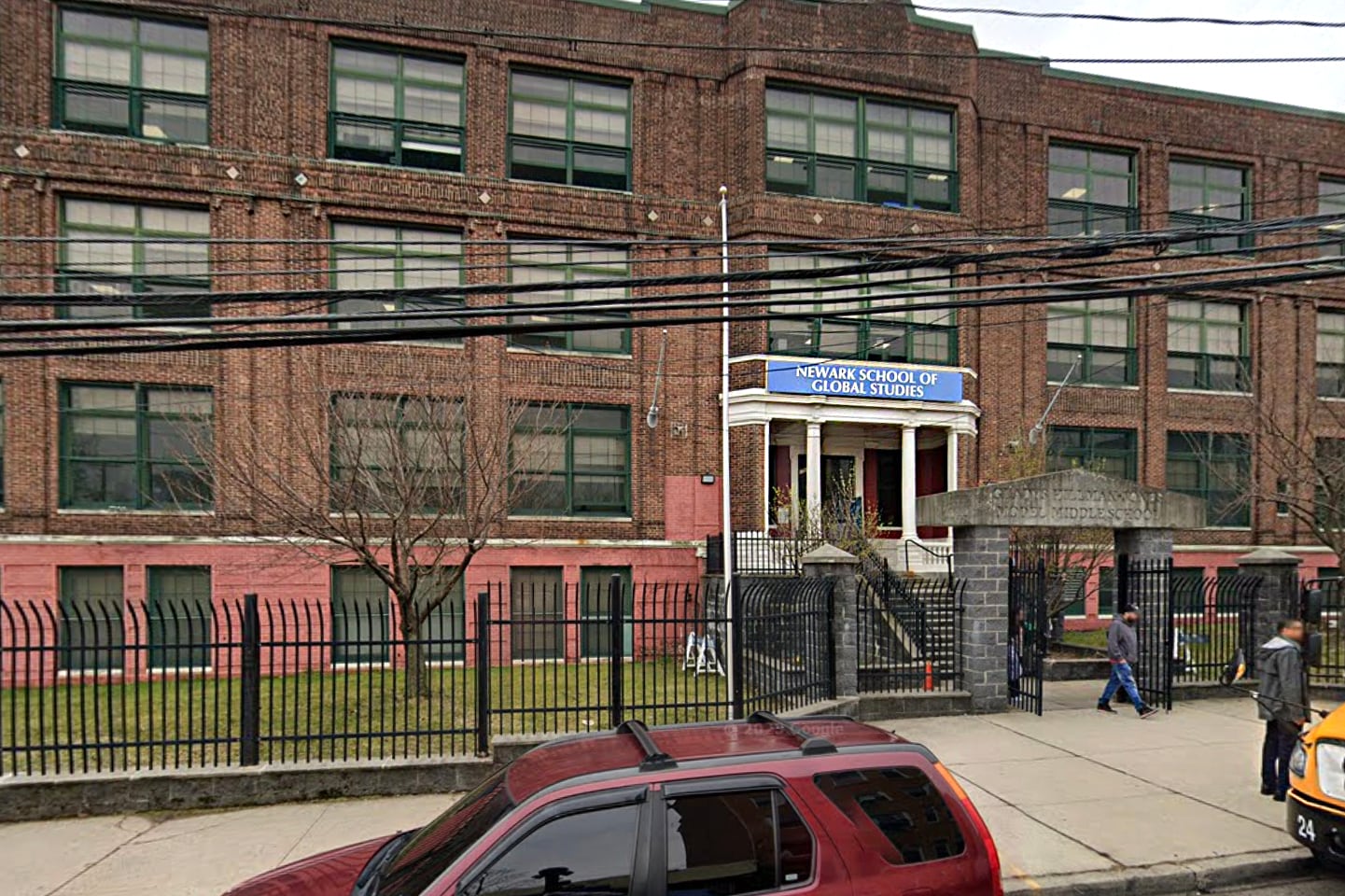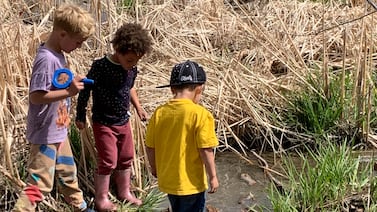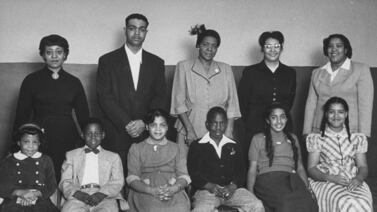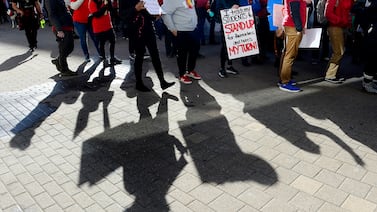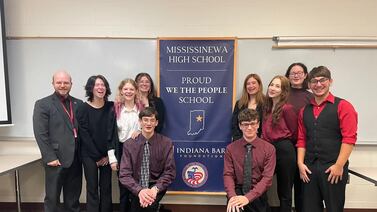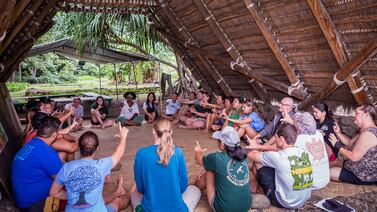Sign up for Chalkbeat Newark’s free newsletter to keep up with the city’s public school system.
Newark Public Schools must assess the effects of “anti-Blackness” on the school system and foster conversations about racial issues, an unreleased report examining harassment at the city’s School of Global Studies recommends.
The report also calls on the district to build school staff capacity to identify cultural gaps and create an environment that is racially conscious and inclusive.
The recommendations provide a glimpse into a scathing review of the cultural, religious, and racial dynamics at Global Studies after incidents of harassment against Black students and staff surfaced nearly a year ago. The news also comes as the high school’s vice principal Hoda Abdelwahab, who was among those called out for handling the issues poorly, left the district.
It’s unclear if the recommendations will be implemented in all public schools.
This is the first time Newark revealed details about the report, which were shared in a board meeting this week. In June, Superintendent Roger León said the review would not be released publicly but rather would serve as “an internal document” to help inform a strategy to tackle racial issues in city schools.
In a call with Chalkbeat Newark on Wednesday, vice president Dawn Haynes, one of the board members who has read the report, said: “It was traumatizing to read.”
“Those students and staff that were affected by the environment at the School of Global Studies show a deeper concern with America as a whole with racism and separation that should never be tolerated in any school,” said Haynes, whose daughter was among those who transferred out of the school due to the ongoing religious and racist harassment she experienced.
Last November, Global Studies students spoke publicly about their experiences of racial harassment during their time at the high school. The issues drew heavy criticism from the community about the way the school and district leaders handled the situation and led several students to transfer and some teachers to resign.
The investigation, conducted by consulting firm CREED Strategies, began in January after board members approved a data-sharing agreement with the firm.
Three recommendations were mentioned during Tuesday’s school board meeting but during the discussion, Haynes said there “were more than three recommendations that we agreed to have as well as implement in each school.”
According to the recommendations shared by the district, Newark schools must work to do the following:
- “Assess how anti-Blackness and other deficit beliefs” impact existing school systems and practices and “replace them with those that create a culture that is intentionally racially conscious and inclusive.”
- Create and nurture a school culture where “issues of race, culture, and other emotionally charged topics can be discussed openly” and “are integrated into the instruction and learning of the school.”
- “Commit to culturally responsive-sustaining education transformation” that develops the capacity of all school staff “to identify cultural gaps in their practices and builds the knowledge and skills they need to integrate students’ race, ethnicity, and culture.”
In addition to the recommendations, principal evaluations were modified to include “equity indicators” and base performance on their school’s climate, among other existing criteria, according to a board development and governance committee report.
Newark Public Schools spokesperson Nancy Deering did not respond to a request for comment on the recommendations or the district’s plan to implement them.
Emails obtained by Chalkbeat Newark in March show parents emailed the school’s principal Nelson Ruiz, vice principal Abdelwahab, who started a new position at Millburn Township Public Schools in August according to her LinkedIn profile, and other school leaders begging for an end to the ongoing harassment. At least one parent called for the removal of Ruiz, who remains the principal of the school.
Also in June, León said he would call on Ruiz to help other principals deal with similar issues at their schools and provide guidance as needed.
The incidents at the high school last fall also received attention from Newark Mayor Ras Baraka, who met with students last December and hosted a town hall this spring to discuss unity among Black and brown communities.
Dr. Lauren Wells led the report of the high school and interviewed students, staff, and parents at the center of the incidents. Wells is Baraka’s former chief education officer whose firm also helped create NPS Clarity 2020, the district’s one-year plan laying the foundation for change in schools after returning to local control.
During the August school board meeting, board members said they had not reviewed the unreleased CREED Strategies report. Board members were told they could read the report by setting up a time with the district.
Last month, two former teachers filed legal claims with the state after suffering “severe emotional problems” due to the incidents they experienced at the school, they said. The claims are the first legal actions against the district since the issues surfaced and could lead to a lawsuit.
In July, Newark Schools completed its own investigation of the incidents after the former teachers filed complaints with the district’s affirmative action office alleging the school’s principal Ruiz, Abdelwahab, and department chair Shagun Kukeja created a hostile work environment at the high school based on race.
Global Studies first opened its doors in 2020 welcoming ninth graders to a high school offering a global perspective where students could study different cultures and prepare to study abroad.
Jessie Gomez is a reporter for Chalkbeat Newark, covering public education in the city. Contact Jessie at jgomez@chalkbeat.org.


